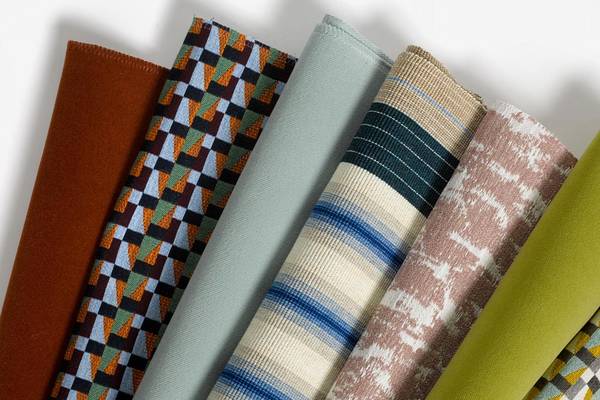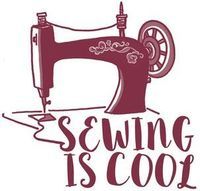
Fabrics That Won’t Bleach: Are Some Fabrics Bleach Resistant?
Generally, fabrics are not safe from the rigors of chlorine bleach. But much has changed since your grandmother was a child. Technology, research, and experiments have all contributed to a new line of fabrics that may be able to resist bleach.
Are some fabrics bleach resistant? There may be fabrics that are bleach resistant but they may not come by that ability naturally. We have found some bleach resistant cotton tools but like other fabrics, they have been treated to resist bleach and take the worry out when you do your laundry.
To find out more on this topic, just continue to read our article. It does the hard work for you and investigates this topic. Take a few minutes to see if there is such a thing as bleach resistant fabrics. This topic may help you save some money.
Are Some Fabrics Bleach Resistant?

This may be something of a treasure hunt in finding the answer to this question. To be considered bleach resistant or bleach cleanable the fabric needs to not weaken or fade when bleach is added to the wash.
The technique called solution-dyed fabric means that the dye color is added in the middle of the fabric making process. This technique means that the color goes right through the fibers so that there is no original color for the bleach to get the fabric back to.
This is called a bleach resistant or bleach cleanable fabric. You will find that acrylic, nylon, polyethylene, and polypropylene along with high energy polyester and polyurethane fabrics resist this aspect of bleach.
Some of those fabrics may be chemically treated to resist bleach so they won’t weaken either when the bleach is applied to the wash. While some synthetic materials appear to be bleach resistant, if you soak them in bleach the chemical cleanser can damage the synthetic fibers.
Colorfastness is seen as being bleach resistant because the dyes used in the process of making the material are set early in the manufacturing process. Bleach has a hard time getting rid of or fading that color because it goes clear through. But bleach is still harmful to almost every fabric that has been invented.
Why Won't Fabric Bleach?
The answer to this question depends on how you define the term bleach. If you are thinking that the word bleach simply means to brighten colors and make them look good then there are a lot of fabrics that resist bleach.
But if you are looking at the word bleach as a stain remover then you may find that almost all fabrics give up their stains when bleach comes in contact with them. But bleach resistance is more than just those two elements.
Since chlorine is a strong chemical you have to weaken the bleach in order to get the colors looking better and remove the stains. This is not being bleach-resistant but making the bleach too weak to work effectively.
Almost all fabrics will damage in some way if you use too strong of a bleach solution or soak the garments in the chemical for far too long. Even polyester and rayon will deform when this happens.
If the fabric won’t bleach then either the concentration of the chemical is too weak or the material is a colorfast design and there is no original color underneath the dye used to create the look of that fabric.
Fabrics That Won't Bleach

Generally, synthetic fibers are the hardest to bleach because of the way, and when the dye is added to the chemical solution that creates synthetic fibers. That means that people are restricting the definition of the word bleach to simply removing color.
Bleaching is also about sterilizing fabrics, removing stains, and to be bleach resistant those two qualities will not work on the fabrics you are washing. So to say that a fabric won’t bleach means that it cannot be sterilized or cleaned by that chemical.
There are lots of fabrics that won’t bleach if everyone uses the definition of removing color. Nylon, polyester, acrylic, to name a few. are just some of the synthetic materials that won’t bleach when the definition of the term is limited to just removing color.
But those materials do lose their dirt, they do get sterilized and they do appear cleaner when taken out of the wash. Long term exposure is not recommended when you have tough stains to remove.
The chlorine bleach tends to ruin plastic fibers through the chemical interaction that happens when you combine chlorine with other harsh chemicals. When you soak clothes in bleach you will find that natural and synthetic fibers do not react very well.
Why is My Bleach Not Working on Fabric?
Most likely it is because those fabrics are deemed colorfast and have gone through a different dyeing process than most fabrics go through. For example, the dye is added long before the fibers are extruded so there is no original color except the shade that was in the dye when it was added to the manufacturing process.
That means that the bleach may fade the color but it cannot remove it. It is clear through the fibers and there is no other color underneath for the bleach to go to. You can still bleach those colorfast clothing items to sterilize them and remove the stains but you may want to use the hydrogen peroxide or oxygen version of bleach to make sure the colors do not lose their original luster.
If the stains and the germs are gone then the bleach did 2/3 of its job and still bleached your clothing. Then if you are merely looking for the removal of the color, bleach is not effective against certain fabrics.
You will need a dye remover to lift the color out first. That dye remover helps to lift the color but it too may not be 100% successful.
Is Polyester Resistant to Bleach?

Yes and no. It may hold its color due to its manufacturing process but it can be damaged by chlorine bleach if it is left in that solution for too long. or if the concentration of bleach is too strong.
A polyester thread can be bleach resistant, color-wise, but if you use bleach on a garment made from natural fibers and polyester thread you may get a two-toned color effect. The thread may not fade but the natural fibers will.
Also, some polyester materials may not be colorfast or made with that special due technique we already discussed. That means the color will bleach out on you. We have dealt with this topic in a more in-depth manner in an article title Can you bleach polyester and you can find that article by clicking on this link.
The best you can say is that bleaching polyester is a depends situation. Some polyester materials you can bleach and others you can’t. But then the definition of the term here is restricted to just removing color, not other duties that bleach carries out.
Bleach Not Working: My Shirt Won't Bleach

One reason has already been explained above and that reason is that the shirt has been made in a way that the dye is clear through the fibers and is the original color of those fibers.
Another reason will be that you have diluted the bleach too much and it is not strong enough to handle the task set before it. Bleach that is too weak doesn’t do anything including sterilizing the fabric or removing the stains.
Then there is the possibility that the clothing material has been chemically treated to resist bleach. This won't happen to all fabrics because of the expense involved. But if you want a shirt that resists bleaching this is the fabric to buy.
Check the labels first before you buy to see if there have been any chemicals added to the processing. If there has then you may want to reconsider your purchase. You will have a very difficult time fading any clothing that has been treated by that or those chemicals.
Also, you have to decide if you want those extra chemicals next to your body. They are not non-toxic but very risky materials to have around you and your family. It is a decision that can be tough to make especially if that shirt is cheaper than a natural fiber shirt sans chemicals.
The Pros And Cons Of Bleach
If you read the Clorox bleach website, you may see something interesting. They will downplay certain aspects of bleach and call them myths. The reason they do that is that they are in the business of selling bleach.
But despite that, there are still many positives that come from using bleach in your wash. Here are some of those positives:
Pros:
- It is an effective cleaner, especially the chlorine version.
- It does kill those germs and bacteria.
- The chemical is easy to find and in almost all supermarkets in the laundry sections.
- The bleach is not usually that expensive although oxygen bleach may be a bit pricier.
- It is about 6 times more effective than iodine which is why you find it in water supplies and swimming pools.
But there is also the other side of the story and no story is complete unless you honestly look at and evaluate those negative aspects. Here are some negatives to using chlorine bleach
Cons:
- It is a harsh chemical that can be dangerous to your health.
- If you inhale the fumes, it can be fatal.
- The chlorine can be turned into very harmful solutions when mixed with other cleansers.
- It does irritate the skin especially if you have sensitive skin.
- Chlorine fumes or gas have been suspected of damaging the ozone layer.
- It will damage fabrics upon contact if not diluted or the fabrics were soaked in the solution.
- Chemicals are used on clothing to stop the bleaching aspect making cleaning, fading, and sterilizing more difficult.
Some Alternatives to Chlorine Bleach
If you do not like what you read about chlorine bleach, there are some good alternatives. The only problem is that those alternatives may not be as cheap as chlorine bleach is except 1. here are some of those alternatives:
- 1. Hydrogen peroxide - it may not be as strong as chlorine bleach but it still gets the job done. It also becomes biodegradable when exposed to light.
- 2. Oxygen bleach - this is a safe alternative unless you are washing silk, wool, or fabrics with leather trim or highlights on them.
- 3. Baking soda - just add this to your wash cycle as this product will boost the cleansing power of your laundry detergent. Add it directly as it won’t dissolve completely when put in an automatic dispenser.
- 4. White vinegar - mixed with 6 parts of water this solution can get clothes cleaner, brighter and it is safe to use. You can even soak it overnight.
- 5. Lemons - better with white clothing than other colors. one cup of lemon juice is all you need.
- 6. The sun - is free to use and cheaper than chlorine bleach. Plus, it does kill germs as well.
Honorable mention:
Tea tree oil- this seems to be a miracle natural product as it is used in many applications. For bleaching purposes, all you need is a few drops added to your cleanser or directly into the wash load.
Some Final Words
There may be some fabrics that won’t bleach but those fabrics need to be manufactured in a special way or chemically treated. If you look at all the fabric options available none of them are impervious to the damage that chlorine bleach can cause. They just resist color change.

